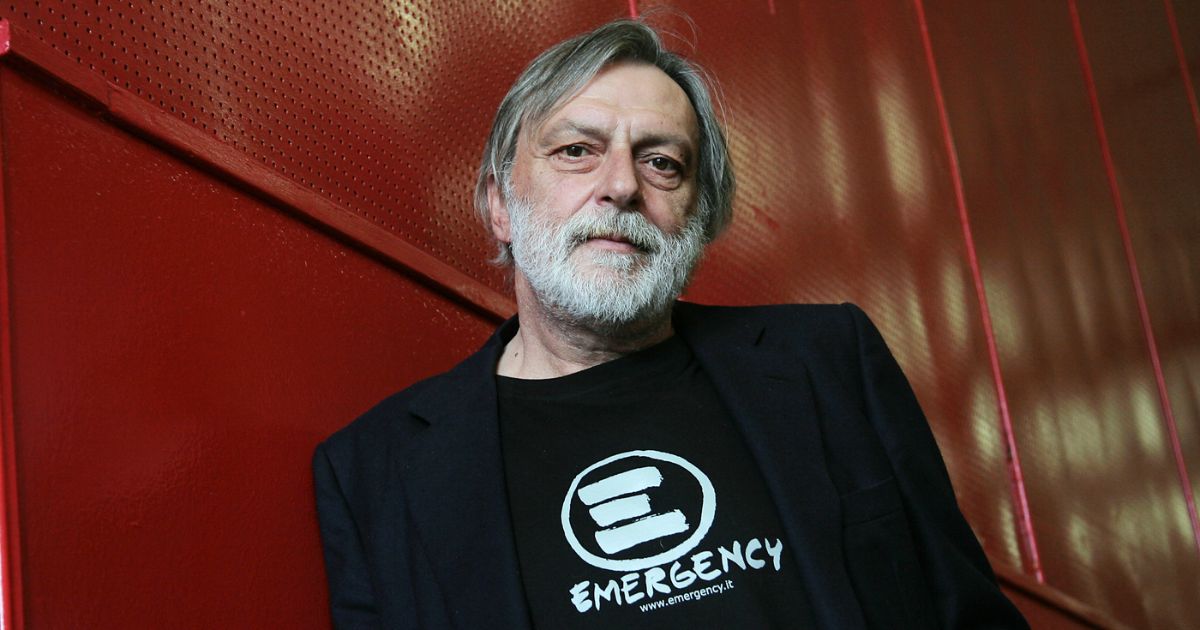Gino Strada it is the demonstration, like so many great characters in our history, that the older one is, the more difficult it is for us to define its greatness. When greatness is reduced to “performance” one risks specializing it only in some meanings but losing its profound meaning. This is why I disagree with those who have defined Gino Strada a philanthropist. Of course for what he did implicitly he was, but he was not just a generic benefactor on the field as if he were comparable to the “third sector” or to the glorious Tuscan “mercies”, and least of all he was one who worked “in the light of a humanitarianism vaguely religious or philosophical “. It was something else and much more.
How I consider partial that reading, albeit fair and acceptable, which reduces Gino Strada’s lesson to defense of rights. Of course Gino Strada defended the rights, therefore the weakest, but in this defense he affirmed a certain idea of justice, a certain conception of the world, a certain ideal of human coexistence, a certain idea of peace and above all, being a doctor, a certain idea of science and medicine.
Today many, especially in health care and medicine, defend rights in words. Even Speranza, that is the government’s PNRR (mission 6), says he is defending rights but Gino Strada, I assure you, would never have accepted to defend the rights of the elderly, the non self-sufficient, the disabled, the sick in general. with contracts to the private or third sector. For this I say, to those who thank Gino Strada for the lesson he had on rights, that it makes no sense to thank him and tolerate more or less complacently subtle or less subtle forms of privatization of public health. The right to health, without the state that guarantees it, is in fact replaced by income, charity or volunteering.
The figure who for many reasons comes closest to Gino Strada is Albert Schweitzer, also a pacifist doctor himself (he was awarded the Nobel Peace Prize in 1952 while Gino Strada was awarded the Right Livelihood, the alternative Nobel Prize in 2005); but also Schweitzer cannot be considered only a philanthropist or a simple defender of rights or more simply an expression of the third sector. But for many reasons it is much, much more.
Personally I have met and known Gino on many occasions and the thing that struck me most when we talked about our things was his considering medicine as a terrain in which to unite our secular ideals, our practices, with reality for what it was. The power of thought of Gino Strada (who was not a thinker) was there practice. Just re-read Green Parrots – Chronicles of a War Surgeon (1999) to grasp in Gino Strada the enormous value that practice has for him and that Moni Ovadia in his preface he fully grasps, putting together the “need to do” and the “duty to do”, that is, the indisputable value of what, according to conscience, should be done.
The birth of Emergency in 1994, an independent association created primarily to bring medical-surgical treatment to the victims of wars, landmines and poverty, is the implementation of medical practices organized in a manner volunteer with the certain aim of helping people but above all of fighting war, injustice, oppression in the world and affirming peace. Medicine for Gino Strada has always been first and foremost an instrument of pace.
As is well known, Gino Strada, an unquestionably left-wing man, disapproved of behavior above all in health care ambiguous of the government left (he has never agreed either with the reform of title V and least of all with the establishment of companies in health care and more than ever with the privatization of public health). For many years he refused to vote as if it were politically disengaged with the only exception in 2014 when he declared that he supported the left-wing Italian coalition L’Altra Europa with Tsipras.
But he wasn’t one of theanti-politics; exactly the opposite. His professional practice was always a “meta” political act, which, above all, to politics in general and to the left in particular, said what one had to “do” to be truly “political” and to be truly “left”. For this reason, he was still an uncomfortable character and his interventions on television on health were good uncomfortable first of all the administrators of the left, deformed by the many neo-liberal temptations of recent years.
There would be many other things to say about Gino Strada, but the last consideration I want to make concerns his idea of medicine. There medicine, for him, it was obviously a science; but it was never just science, it was much more. It was, as in the myth of Prometheus, a kind of political mediation between finitude and salvation, that is, a possibility granted – once by the Gods to humanity, now by science – to remedy one’s condition of vulnerability. But above all to remedy the vulnerability created by the war.
Gino Strada, and I believe that the greatness of his de facto work consists in this, reinterprets and transfers this ancestral and paradigmatic mediation into the world of war, injustice, oppression, that is, using it against cruelty of our time. The problem for Gino Strada was to survive the effects inhumane the modern senselessness of man represented first of all by war, violence and oppression.
